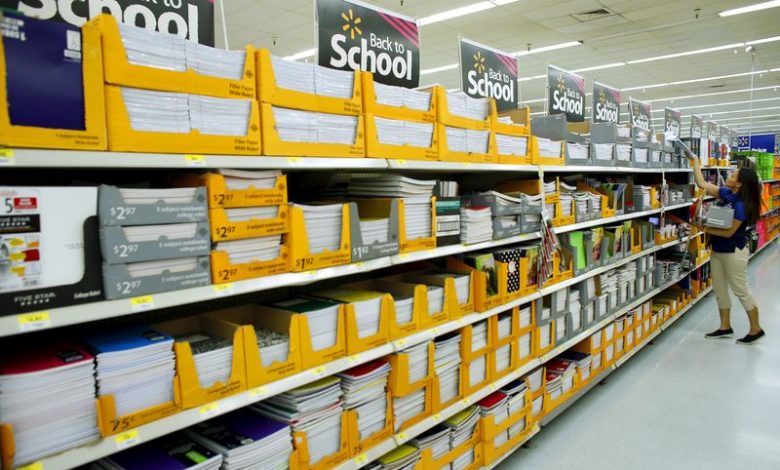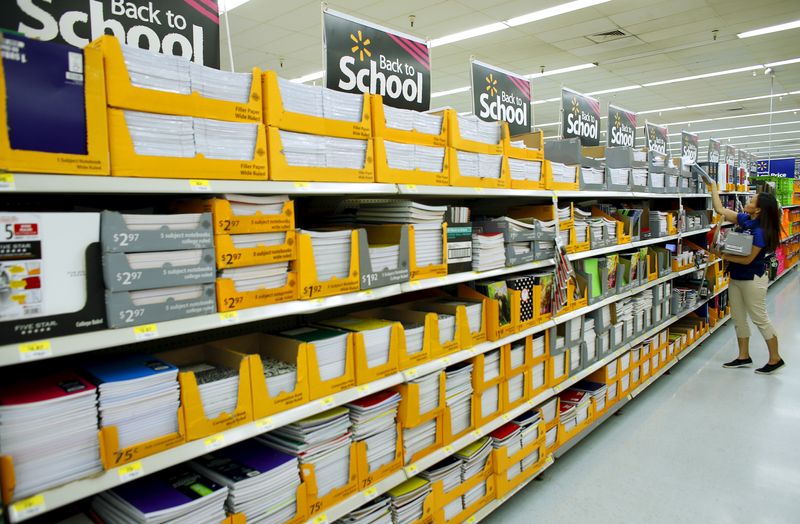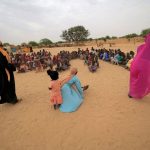U.S. students trailing pre-pandemic learning levels, new study shows


Walmart department manager Karren Gomes helps stock shelves with school supplies as the retail store prepare for back to school shoppers in San Diego, California August 6, 2015. REUTERS/Mike Blake/File Photo
By Rachel Nostrant
(Reuters) – U.S. students have not caught back up to pre-COVID levels of learning in math and reading, with Black and Hispanic pupils among the hardest hit by the pandemic, a study released on Tuesday showed.
The analysis by the Northwest Evaluation Association (NWEA) highlights the continuing toll on education from the COVID-19 pandemic, which led to prolonged school closures and remote learning for millions of school children.
Nearly $200 billion in federal money has been allocated to address pandemic-related learning loss. Schools have used the funds to bolster tutoring programs and summer school options, in addition to other recovery efforts.
But an evaluation of test scores from 6.7 million public school students in third through eighth grades showed they had not made the same progress during the 2022-2023 school year as their pre-pandemic counterparts, according to NWEA, a national education research organization.
“Even though this is disheartening, we can’t look away and we can’t just accept that this is our new reality,” Karyn Lewis, a co-author of the study, said.
Third graders proved to be an exception, with above-average growth in both math and English, but it was unclear why, Lewis said.
Students from high poverty areas and traditionally marginalized groups such as Black and Hispanic children were the most harmed academically by the pandemic, the study found.
The extended loss of education could cost students $70,000 in potential earnings throughout their lifetime, according to a December 2022 study by Stanford University.
The NWEA study found that across the U.S., students on average would need more than an additional four months of instruction in math and reading to catch up to pre-pandemic levels.
The organization said the extra schooling would require a sustained effort over several years, and even longer for marginalized students.
“Schools and school districts are doing the right things, just not enough of the right things,” Lewis said.












